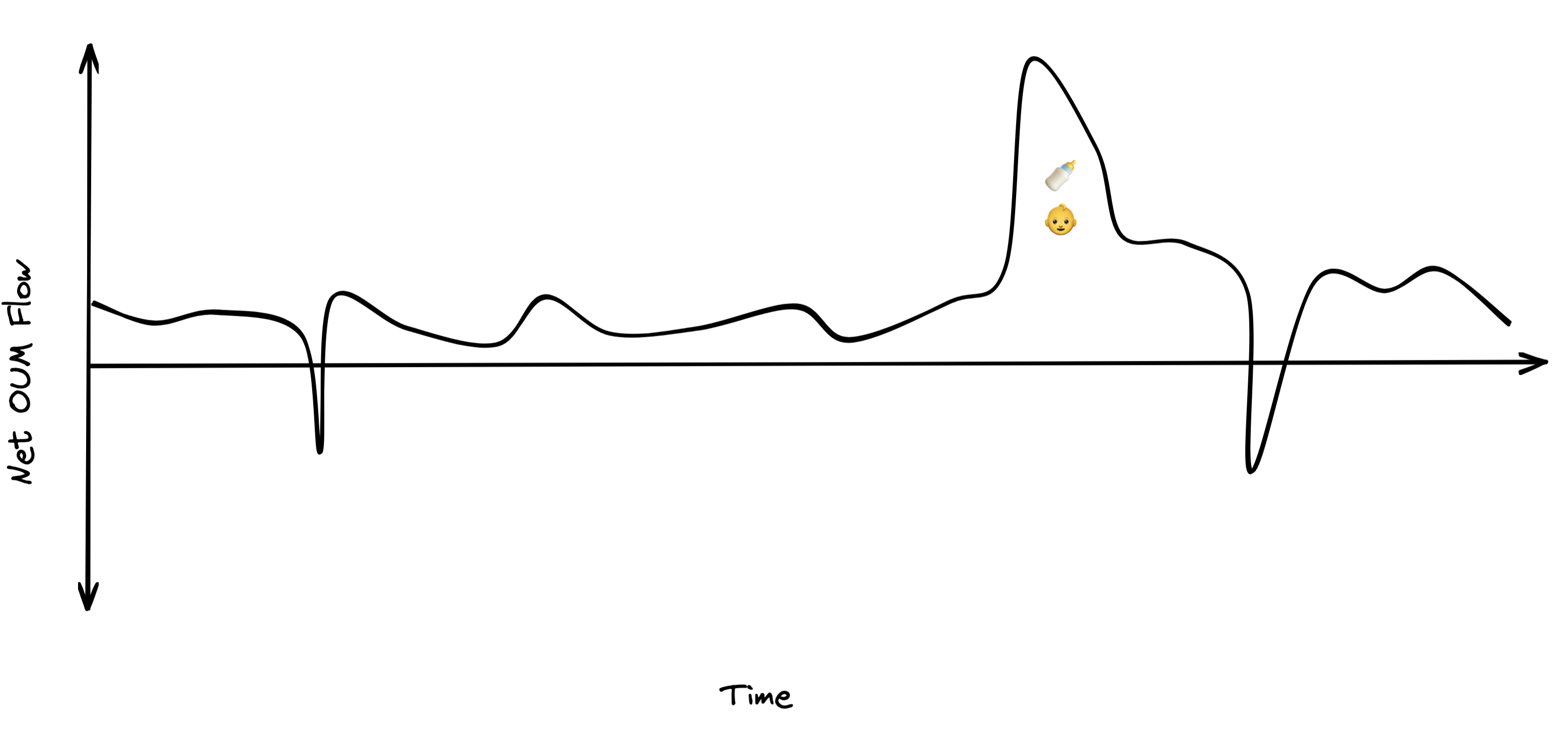Reflections on babies and how they fuck up household supply chains
Having a child is a wonderful, life altering experience. It is profoundly fulfilling and changes you physically, cognitively, and emotionally. Someday maybe I'll have enough distance from it to have something more interesting to say about the emotional part of parenthood, but today is not that day. Today I'm talking about logistics.
What they say is true: having kids is hard. It's hardest on the birthing parent, but it's hard for everyone. The nitty gritty, hands-on-kid childcare happens round-the-clock, and takes a lot of work. But, you're interacting with someone you love.
There's another kind of work that's underestimated by first-time parents (at least by this one): household supply chain. It's just as necessary as any part of childcare, but it's less rewarding than spending time with your new kid.
Stuff needs to get purchased, moved around, cleaned, disposed of, returned, repaired, sold, replaced, etc. This kind of work is always happening in a home, but having a kid absolutely overloads your finite capacity to manage it. You have the number of adult hands you have[1]. But the throughput of the system goes through the roof. Before you know it, you're living in a pile of dishes, boxes and laundry, asking "what happened" and wondering if FEMA can help.
Accumulation of Objects Under Management

Everything in your home–from furniture to a container of takeout–is an object you're managing. It entered your home because you or someone else thought you needed it. It will leave your home someday. While it's under your care, it's accumulating costs:
- Storage cost (unit =
m^2) - Cognitive cost (i.e. knowing that it exists, where it is, if it needs maintenance, etc; units =
squishy) - Maintenance cost (examples includes washing dishes, doing laundry, having something repaired, etc; units =
time, money)
In the normal course of life, objects are entering and leaving your home at a somewhat predictable rate. Sure, you have surges of activity (for example when you move, do spring cleaning, have a big life event, etc). But, your object management is spread out over time. When you have kids you have 10,000 new problems to solve all at once. You need to figure out what to purchase to solve the problem, how to use it, return what didn't work, figure out how to maintain what you keep. No one can tell you a definitive shopping list because every baby, parent, and home is different.

To make matters worse, your kid grows out of most items quickly, so there are aftershocks to the initial supply chain earthquake.

Negative spirals (how assets become liabilities)
There are some negative feedback loops that can happen when you get behind on object maintenance. If everything is clean and put away, you can find it. When you need a burp cloth, or a clean shirt, or both–you know what drawers to open. It's an o(1) operation. When you have piles of clean laundry, you're looking through everything and it's an o(n) operation. In the worst case scenario your dresser itself becomes a derelict object, containing nothing you need and taking up space.
You can get into a downward spiral. The influx of problems causes an influx of new objects. The influx of new objects strains the organizational systems you have in place. When nothing has a home, you're spending more cycles on searching for objects. At the same time, your capacity to work, organize, and maintain is tanking.
Some misc notes/rants on babies and parenthood
Our society is not set up for raising children. It's hard. Even with paid parental leave, even with money, even when you're ready. Childcare is radically expensive. You can't get any fucking baby formula. We're two years into a plague–unprecedented in modern times–and the government is sitting on their hands approving life saving vaccines for kids because.....
It's totally worth it. If you want to have kids, you should go for it because nothing else is quite like it. I just can't write something about babies without saying:
- It should be a choice. Abortion should be legal, de-stigmatized, safe and easy to access.
- We can afford, as a society, to make it a little easier on babies and new parents.
When you have a kid, this capacity is greatly reduced because one of you is doing childcare at all hours. Also, the birthing parent is recovering for weeks which greatly reduces their capacity. ↩︎
- Next: WebReducer Update 3
- Previous: Lessons learned from a recent job search